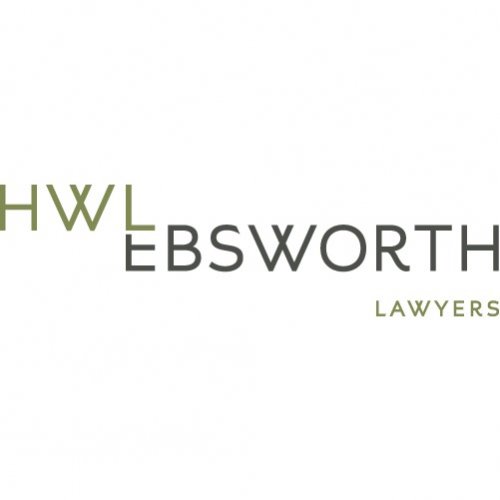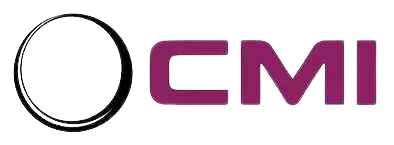Best Copyright Lawyers in Australia
Share your needs with us, get contacted by law firms.
Free. Takes 2 min.
Or refine your search by selecting a city:
List of the best lawyers in Australia
About Copyright Law in Australia
Copyright law in Australia is designed to protect the rights of creators of original works. It grants authors control over the use of their intellectual property, ensuring they can benefit from their creations. Copyright automatically applies to a wide range of works, including literary, artistic, musical, and dramatic works, as well as films, broadcasts, sound recordings, and published editions. The governing legislation is the Copyright Act 1968, which aligns with international treaties ensuring Australian creators have protection both domestically and abroad.
Why You May Need a Lawyer
Seeking legal advice on copyright matters can be critical in several situations. You may require legal assistance if you're accused of copyright infringement, need to enforce your rights against unauthorized use of your work, or are negotiating licensing agreements. Additionally, businesses handling creative content regularly consult lawyers to ensure compliance and navigate complex issues like copyright ownership, transfers, and moral rights. Understanding the nuances of copyright law can be challenging, making expert legal advice invaluable in protecting your interests.
Local Laws Overview
Key aspects of Australian copyright law include automatic protection without registration, lasting for the creator's lifetime plus 70 years for most works. The law grants rights to reproduce, publish, perform, and communicate the work to the public. Importantly, exceptions such as fair dealing allow for limited use without infringement in cases like research, criticism, or news reporting. Moral rights also play a significant role, ensuring creators have the right to attribution and protection against derogatory treatment. Understanding these local subtleties is essential for anyone involved with copyright-driven work.
Frequently Asked Questions
What is automatically protected by copyright in Australia?
In Australia, original works such as literary, artistic, musical, and dramatic creations, as well as films, sound recordings, broadcasts, and published editions, are automatically protected under copyright law without the need for registration.
How long does copyright last in Australia?
The duration of copyright protection varies. Generally, for literary, dramatic, musical, and artistic works, the protection lasts for the life of the creator plus 70 years after their death. For films, sound recordings, and broadcasts, different rules apply.
What does 'fair dealing' mean in copyright terms?
Fair dealing is a legal provision allowing limited use of copyrighted material without permission for purposes such as research, criticism, review, parody, news reporting, or professional advice. The use must be 'fair', requiring case-by-case assessment.
Can copyright be transferred or sold?
Yes, copyright can be transferred or assigned to another party, usually through a written contract. This enables the copyright owner to sell or license their rights to others, subject to certain conditions.
What are 'moral rights'?
Moral rights in Australia pertain to the personal rights of creators to have their work attributed to them, and to object to derogatory treatment of the work. These rights exist independently of economic considerations like copyright ownership.
Who can claim copyright in a work?
Generally, the author or creator of the work holds the copyright. However, there are exceptions, especially where works are created under an employment contract, in which case the employer often holds the initial rights.
What constitutes copyright infringement?
Copyright infringement occurs when a protected work is used without authorization in a way that violates the owner's rights, such as making unauthorized copies, distributing, or performing the work in public.
How can I protect my work internationally?
Australia is a signatory to various international treaties, such as the Berne Convention, which facilitate international recognition of copyright protection. This means your work is typically protected in other member countries to a similar extent as if it were created there.
How does copyright impact digital content?
Copyright applies equally to digital content as it does to physical forms. This includes content such as e-books, music files, and digital images. However, special attention is required for digital distribution and licensing.
What should I do if I find someone infringing on my copyright?
It's advisable to seek legal advice to determine the appropriate course of action, which may involve contacting the infringer to cease unauthorized use or taking legal action to enforce your rights.
Additional Resources
For further information, consider consulting the Australian Copyright Council, a non-profit organization offering resources and advice on copyright. Additionally, the Australian Government's Department of Infrastructure, Transport, Regional Development, Communications and the Arts provides comprehensive guides and policy updates on copyright. Legal specialists and IP attorneys can provide tailored advice suited to individual circumstances.
Next Steps
If you need legal assistance concerning copyright, start by gathering all relevant information about your situation. Highlight key concerns, such as potential infringements or the need for licensing agreements. Consult with a lawyer specializing in intellectual property for personalized advice. Consider contacting local law firms with expertise in copyright or using referral services from the Law Society or similar professional organizations to find a suitable lawyer. Preparing a detailed account of your needs will facilitate a more productive consultation.
Lawzana helps you find the best lawyers and law firms in Australia through a curated and pre-screened list of qualified legal professionals. Our platform offers rankings and detailed profiles of attorneys and law firms, allowing you to compare based on practice areas, including Copyright, experience, and client feedback.
Each profile includes a description of the firm's areas of practice, client reviews, team members and partners, year of establishment, spoken languages, office locations, contact information, social media presence, and any published articles or resources. Most firms on our platform speak English and are experienced in both local and international legal matters.
Get a quote from top-rated law firms in Australia — quickly, securely, and without unnecessary hassle.
Disclaimer:
The information provided on this page is for general informational purposes only and does not constitute legal advice. While we strive to ensure the accuracy and relevance of the content, legal information may change over time, and interpretations of the law can vary. You should always consult with a qualified legal professional for advice specific to your situation.
We disclaim all liability for actions taken or not taken based on the content of this page. If you believe any information is incorrect or outdated, please contact us, and we will review and update it where appropriate.
Browse copyright law firms by city in Australia
Refine your search by selecting a city.
















